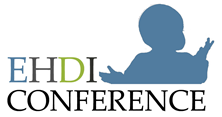| ABSTRACT INFORMATION |
| Presenter Information: |
| Presenter 1: |
Name: Alys Young
Affiliation:
Alys Young, PhD (Deaf Studies), MSc (Oxon.), MA (Cantab.), CQSW is Professor of Social Work Research at the University of Manchester where she leads the Applied Social Research in Deafness group. She is well known for her published work on families and early identification; informed choice and services and organisational research in deafness. She has worked as a hearing person with d/Deaf colleagues for nearly 20 years.
|
| Presenter 2: |
Name: Maria Gascon-Ramos
Affiliation:
Maria Gascon-Ramos, PhD (Deaf Studies) is a Research Associate in the Division of Social Work in the University of Manchester. She currently works on the Positive Support project as well as researching Emotional Intelligence of Deaf people. She has previously worked on the field of Deaf bi-bi education, wellbeing promotion and mental health of deaf children and their families. She is a qualified teacher of the deaf and educational psychologist. She is originally from Spain and is fluent in several signed and spoken languages.
|
| Presenter 3: |
Name: Wendy McCracken
Affiliation:
Wendy McCracken B.A Hons;MEd (Audiology);Cert TOD;Cert ED. is a senior Lecturer in Deaf Education and Programme Director of the Training course for Teachers of the Deaf at the University of Manchester. She is well known for her published work on audiological management, service development and deaf children with complex needs. She has worked across a range of settings including early years, primary and secondary in both oral and sign bilingual settings.
|
| Presenter 4: |
Name: Gwen Carr
Affiliation:
|
| Presenter 5: |
Name: Emily Pattison
Affiliation:
Emily Pattison, PhD (Epidemiology), MSc (Genetic Epidemiology) is a Research Associate on the Positive Support in the Lives of Deaf Children and their Families Project at the University of Manchester. She previously worked as the Trial Coordinator on the Babies Early Amplification Research Study (BEARS), a randomized controlled investigating the impact of early amplification, on both the child and the family, in children with a unilateral hearing loss identified through the Newborn Hearing Screening Programme.
|
|
| Author Information: |
| Author 1: |
Name: Alys Young
Affiliation: University of Manchester
|
| Author 2: |
Name: Maria Gascon-Ramos
Affiliation: University of Manchester
|
| Author 3: |
Name: Wendy McCracken
Affiliation: University of Manchester
|
| Author 4: |
Name: Gwen Carr
Affiliation: University of Manchester
|
| Author 5: |
Name: Emily Pattison
Affiliation: University of Manchester
|
|
| Abstract Information: |
| Title: |
Assessing the ‘quality’ of quality early intervention |
| Primary Track: |
7-Program Evaluation and Quality Assurance
|
| Keyword(s): |
parent centered quality assessment |
Abstract: |
It is well accepted that the enhanced developmental outcomes of early identified deaf children are predicated on quality early intervention. However, assessing the quality of that intervention is a complex task. Measurements of quality consist both of understanding the input (the frequency, content, nature and delivery of intervention) and understanding its uptake (how quality is perceived and valued by those to whom intervention is directed). “Positive Support” is a 3 year prospective longitudinal study of early identified deaf children, their families, services, and outcomes. This presentation will focus on two strands of the study. Part one will report results from the parent-centered assessment of quality tool that has been developed consisting of four elements: (i) description of the structure of professional services evaluated according to timelines and availability; (ii) content of intervention evaluated according to quantity, relevance, and satisfaction; (iii) process of the intervention evaluated according to extent and importance; (iv) overall impact. 82 parents participated in the study providing data at 6 monthly intervals. In addition they completed a short form TEIQUE (Trait Emotional Intelligence Questionnaire) to control for the influence of overall approach to life on parents’ evaluations. Part two will focus on results from the complementary study of professional practice. Families were asked to nominate 3 early intervention practitioners, at 6 monthly intervals, who they had found of particular value. 100 professionals completed a self report questionnaire that explored the characteristics of their professional style of practice as well as the nature and content of the intervention provided. They also completed a short form TEIQUE. The study is significant in providing an approach to assessments of quality early intervention that is sensitive both to factors intrinsic to the extent and process of intervention as well as to the influence of individual family factors. |
| Presentation(s): |
Not Available
|
| Handouts: |
Not Available
|
|

